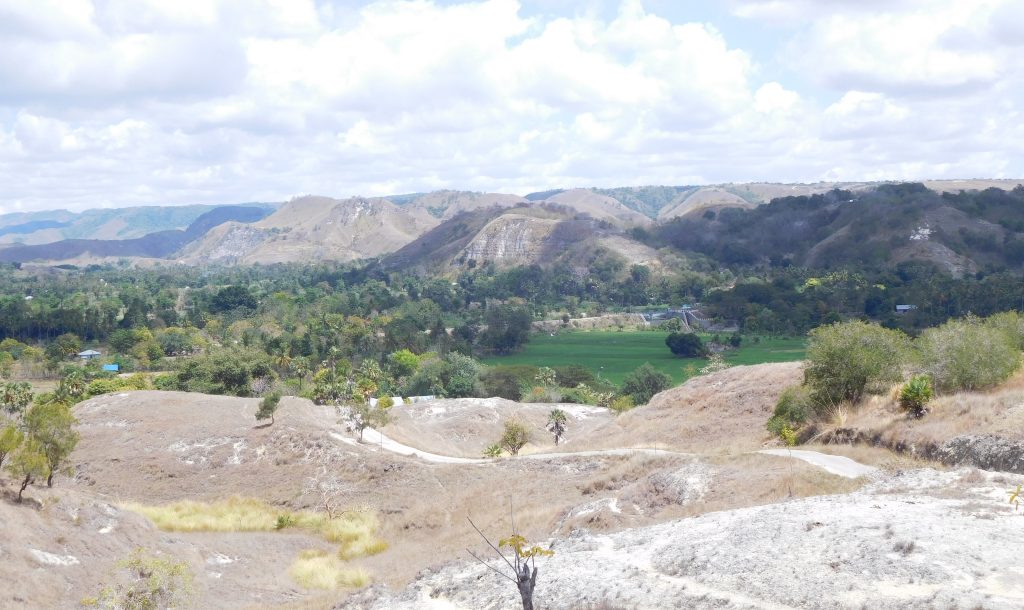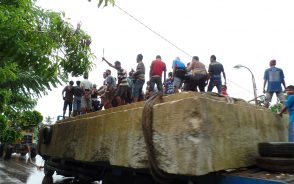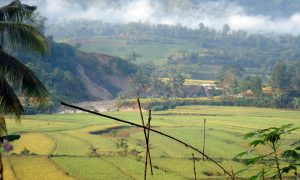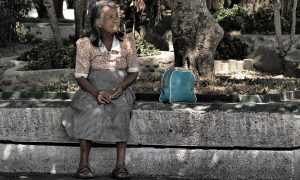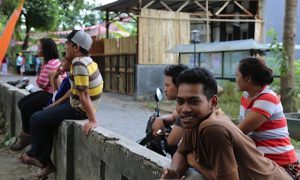In Indonesia, the highest number of COVID-19 infection cases are found on Java and South Sulawesi. The Eastern Nusa Tenggara province (NTT) appears to be one of the least affected areas.
Does that mean that there is hardly any impact of the crisis in that province? The IMF’s World Economic Outlook, with the title “The Great Lockdown”, was pessimistic about the world economy, but still predicted a 0.5 percent growth for Indonesia in 2020. But are Indonesians relatively safe from the devastating effects of the COVID-19 crisis as experienced in countries with a high number of COVID-19 deaths per capita like some European countries and the USA?
We did a brief check in Sumba, one of the main islands in NTT, as a follow up to our research on household vulnerability, poverty and the impact of social protection programs in Indonesia. We wanted to know what is happening related to the current crisis, and what the effects are for people in the rural areas we studied.
By the end of May, eight COVID-19 infections had been confirmed in East Sumba, all originating from the same cluster in Jakarta. In the villages of East Sumba, people are more worried about harvest failure than about getting infected by the virus. Rice harvests have been less than half of what would be normal, due to the unpredictability of rainfall, and the low rainfall received this year. Plants that are unhealthy because of drought are more vulnerable to pests, and that is what happened. A worm infestation affected maize crops, and an insect infestation impacted rice crops. Consequently, rural households need the full harvest for their own consumption and there is little surplus that can be sold. Illustrative of climate change-related disturbances to rainfall patterns in the last week of May there were heavy rains in East Sumba, destroying unharvested crops in the field.
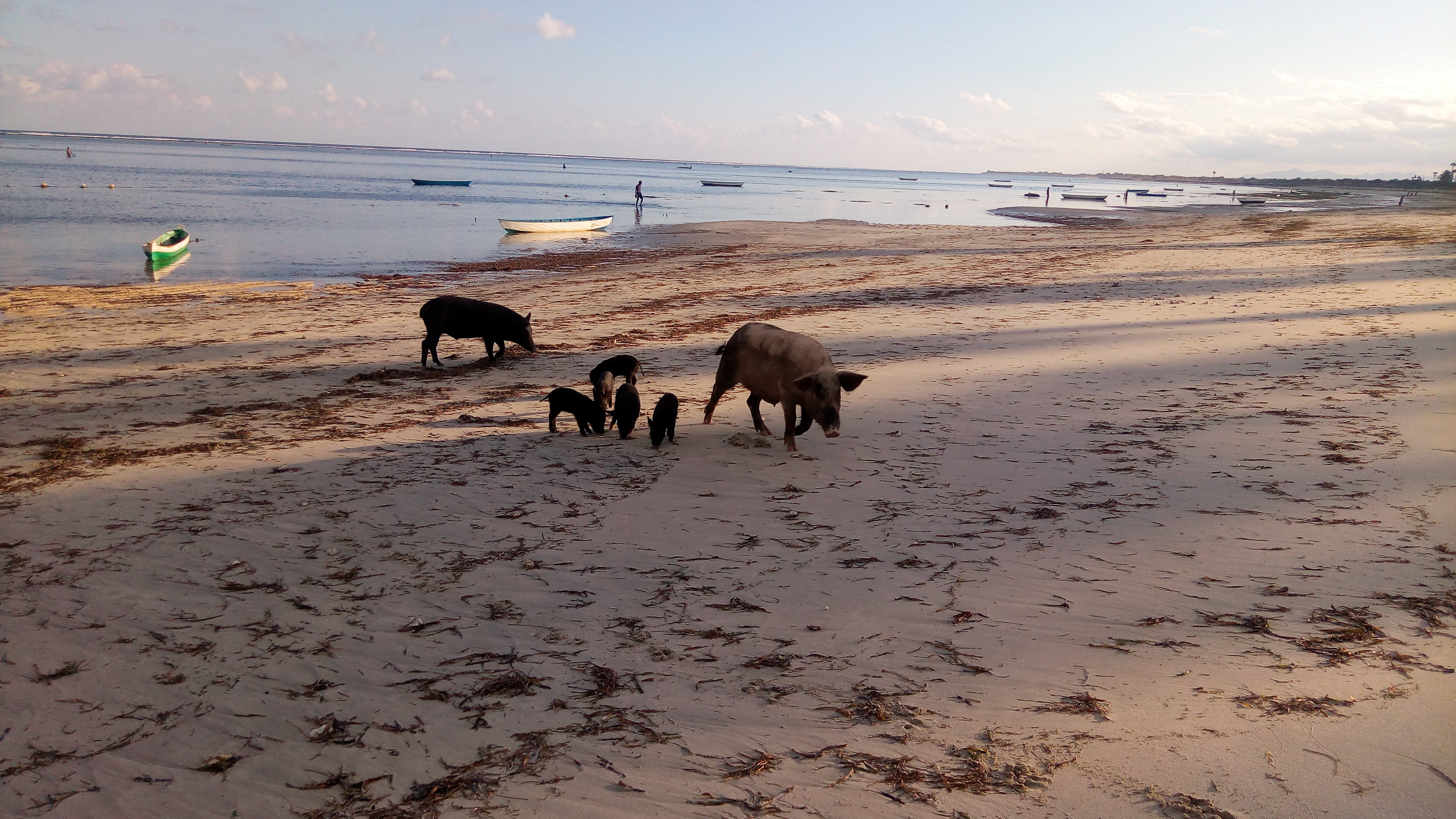
The market for pigs has collapsed. Photo by Stepanus Makambombu.
Normally, when there is a bad harvest people can use their savings for buying household necessities. Those savings in Sumba are typically in the form of pigs and chickens. Villagers can raise pigs relatively easily and whenever they need money they can sell one or two. But that is impossible now due to the restrictions that the government imposed to prevent further spread of the virus. Prohibitions on gatherings of many people led to the postponement or cancellation of ceremonial events at which exchange between family lineages would include pigs. The hosts would also serve a meal with pork. Consequently, the local market for pigs has collapsed, closing off the option of selling pigs as a coping strategy in times of food shortage. Selling to traders from West Sumba, who would normally drive their pickup trucks to villages in East Sumba, is not an option both because borders between the districts on Sumba have been closed and there is a fear that travelling merchants will spread the virus. In May, we saw people queuing up to pawn their silver and gold pendants, which are crucial in ceremonial exchanges at weddings and funerals.
The market for poultry collapsed because restaurants have been closed. Normally, there would also be demand from private consumers in town who like to eat chicken meat, but now everyone in Sumba is feeling the economic pressure and is spending their income on basic food staples rather than meat, which is a luxury food for the majority of Sumbanese.
Fishermen have reduced their catch because there is no market demand for fish at the moment. Actually, there may be local people who would like to buy fish, but to stop the spread of COVID 19 the government has imposed measures to prevent merchants from taking fish on their motorcycles to sell in the villages. People in south east Sumba could still harvest a lot of seagrass, but similar to the fish industry, there is no trade opportunity for that commodity now either.
Meanwhile, the price of commodities imported from other islands have been rising. The price of sugar and onions, for example, went up more than 20 percent compared to earlier this year.
Fortunately, the price of rice in shops has been relatively stable. Most of the rice produced on the island does not enter the market but is consumed within the farmers’ extended families, which implies that many people do not buy rice. Secondly, it is the government’s policy to stabilise rice prices by keeping enough stock and pursuing market interventions if necessary. The rice stock in BULOG in East Sumba is still sufficient for implementing that policy. Cheap rice from the Rastra social protection program (a rice distribution program, formerly known as Raskin) is now more important than ever for villagers in Sumba. There is also a direct cash transfer (Bantuan Sosial Tunai, or BST) from the Ministry of Social Affairs, for households in need.
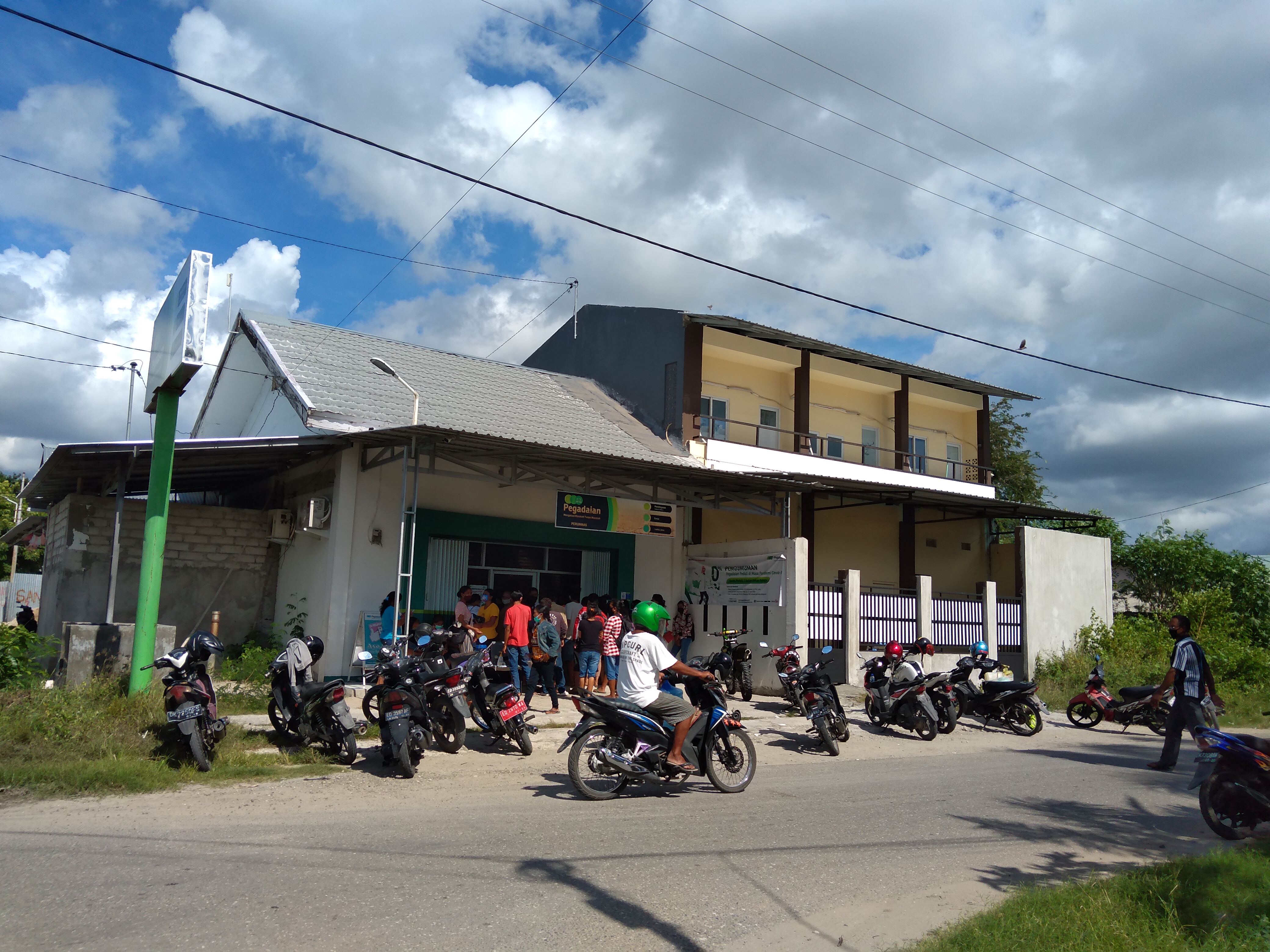
People queuing up at the local pawnshop. Photo by Stepanus Makambombu.
Mutual assistance between members of lineage communities is a strong traditional mechanism for coping with crisis in Sumba. The members of such communities might live across rural and urban areas, or some in upland villages and some along the coast. The variation in harvesting periods in these micro regions and diversification in economic activities spreads the risk of bad harvests and makes it possible for the larger community to survive in times of crisis. Even migrant labourers from Sumba, who managed to return to the island before the harbours and airports were closed to passenger traffic, can still live in the village and receive a share of the common resource base. The ceremonial events at which pigs are slaughtered—which are now prohibited because of the COVID-19 crisis—serve to maintain community bonds, and thus support informal social security in times of shortage. If the COVID-19 measures are extended for a long time they could weaken Sumba’s ceremonial economy.
Overseeing all these economic effects, NTT’s governor announced on 26 May that lock down measures in the province will be lifted as of 15 June 2020. Government officials are expected to return to their offices because working from home is ineffective without a quality internet connection and facilities that the concept presupposes, which are absent in most of NTT. The Governor stated that “the NTT government will not adopt the latest World Health Organization protocol because the province has limited capacity in terms of budget, health care facilities and personnel”. NTT’s economy and society lacks resilience to cope with further restrictions that have devastating socio-economic effects.
We can only hope and pray that the COVID-19 virus will not spread further on Sumba because poor people do not have the means to protect themselves, the hospitals have no capacity for sufficient care, and for those already weakened because of malnutrition and other infectious diseases, resilience will likely be low.
 Facebook
Facebook  Twitter
Twitter  Soundcloud
Soundcloud  Youtube
Youtube  Rss
Rss 